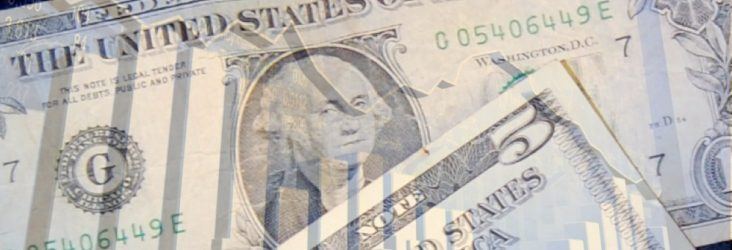Banking and financial industry to go from ‘good to better,’ expects regulation rollback in coming years
by January 26, 2017 3:45 pm 371 views

The banking “industry is very strong,” and it’s expected to be “even better” in 2017, said Tim Yeager, financial professor with the Sam M. Walton College of Business at the University of Arkansas and banking chair for Arkansas Bankers Association. “It’s really a matter of going from good to better.”
The state has 103 banks, and loan and asset growth “has been very solid.” Four banks have been growing across state lines. The housing market is starting to pick up, and he said core strength and core profitability is typical with most Arkansas banks.
“I think profitability will improve,” he said. The Federal Reserve increased interest rates by 0.25%, and it’s likely to raise rates at least once more in 2017, allowing for loan rates to increase. But a question that remains is what and how many interest rate changes to expect,” said Kathy Deck, director of the Center for Business & Economic Research in the Sam M. Walton College of Business at the UA.
The average return on assets is 1.02% in the state, and a good mark of health is 1%, Yeager said. Expect the return to increase to 1.2% by the end of this year. Banks will look to add returns without taking on risk, said John Hall, associate finance professor at the University of Arkansas Little Rock. Hall foresees 2017 about banks adapting to new technology or fintech, and the ease of transferring money with it. He explained that this would include banks easily sending money via smartphone.
A top concern will be the impact of further interest rate increases. It could have a “bigger negative effect than they normally have,” Yeager said. Borrowers have “gotten used to these very low interest rates.” Then, “all of the sudden mortgages might hit 4.5%” A few months ago, a mortgage rate was 3.75%.
“Homes will become somewhat less affordable,” he said. “For the borrower what matters is that monthly payment.”
As interest rates have fallen over the years, home prices have increased, but homes were more affordable. Statewide, home prices are up 2.7% in the third quarter of 2016, from the same quarter in 2015. Another concern will be “excessive competition” between banks in the state. In 2006, before the recession, Northwest Arkansas had 35 banks, but now has 40 banks, Yeager said.
“I would have thought the financial crisis would have narrowed that number down,” he said, adding that continued expansion “makes it difficult for banks to maintain their profitability over the long term.”
Short-term he doesn’t foresee a lot of consolidation, but “over the medium term it’s going to hit.”
Data Yeager follows to gauge the industry’s health includes “bad assets, write offs because of defaults.” These have declined below typical averages. Banks recovered from the financial crisis in 2012, and bad loans have been off the books.
“Banks are really sitting in a nice position now,” he said.
When asked about political impacts to the industry under a Trump administration, Yeager doesn’t expect a lot in 2017 because “it takes time for Congress to consider changes.” A Trump administration will be “a lot less willing to take on new regulations,” Hall said. But existing regulations will be hard to “dismantle,” comparing them to an aircraft carrier and how once one starts it’s difficult to stop.
Deck had similar sentiments on the uncertainty surrounding how quickly existing regulations would change but said banks have already “had to bear the cost of compliance” under the regulations. Overall, the banking and financial sector is healthy, and its growth correlates with how well the real estate market is doing.
“We almost had record level sales,” said Deck, adding the state has experienced post-recession record sales in real estate.
Employment in banking and finance has increased 2.2% between October 2016 and the same month in 2015. Since the election, “bank stocks have done extremely well,” said Jim Huntzinger, chief investment officer for BOK Financial, the publicly-traded parent company of Bank of Arkansas, The equity market with banks has “been on fire,” and he said the market gains are directly related to the election of Donald Trump and expectations his administration will roll back some banking regulations.
